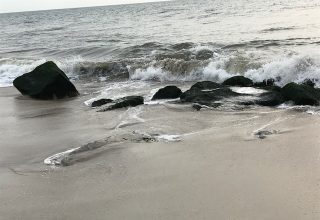
At an early stage of my P&G career I spent time training a graduate management entrant in some of the arcane aspects of Job Study. He was an Irishman, and an Oxford graduate in Literature. We soon exhausted the designated agenda and he introduced me to the poetry of Louis McNiece. His poem, “What is Truth?” has guided me in many situations:
What is truth? says Pilate,
Waits for no answer;
Double your stakes, says the clock
To the ageing dancer;
Double the guard, says Authority
Treble the bars;
Holes in the sky, says the child,
Scanning the stars.
The truth looks different when viewed from different points of view.
One wise man observed, “The main difficulty with a point of view is that we are standing on it!” We all know that, and lie to ourselves about who we really are.
This one pops up for me frequently when recalling something from the past. I KNOW that my version is absolutely accurate. I know that my recall is true and it often takes a long while for me to stop lying to myself about my infallible memory and benefit from another’s.
~~~
Two colleagues and I were invited to review a new vehicle start up programme in a major British start some years ago. A team of fourteen engineers had worked for eighteen months planning and creating a meticulously detailed plan. Our conclusion was that it was extremely thorough, but we thought that one aspect was missing; there were no procedures or training for dealing with a breakdown in the process. Their response was that having spent so much time developing the plan it was expected to be foolproof, and further, they would get credit for solving problems as they occurred rather than building in procedures that could be seen to be expecting them.
The truth for this company was that engineering excellence would solve all problems, and that was how problems were solved and performance judged.
~~~
I was invited to review a very large Coaching Programme that had produced poor results in a national pharmaceutical company. The truth was that the programme was completely misconstrued as yet another management control, and mangers could not be trusted to release the potential of their people.
Download Article














